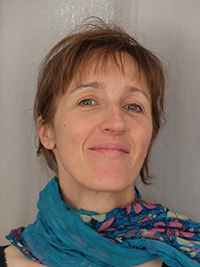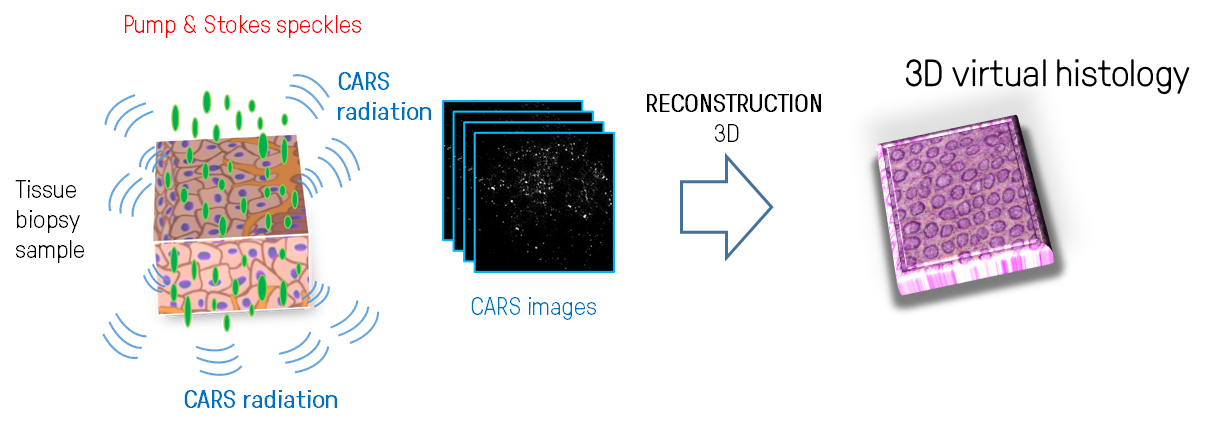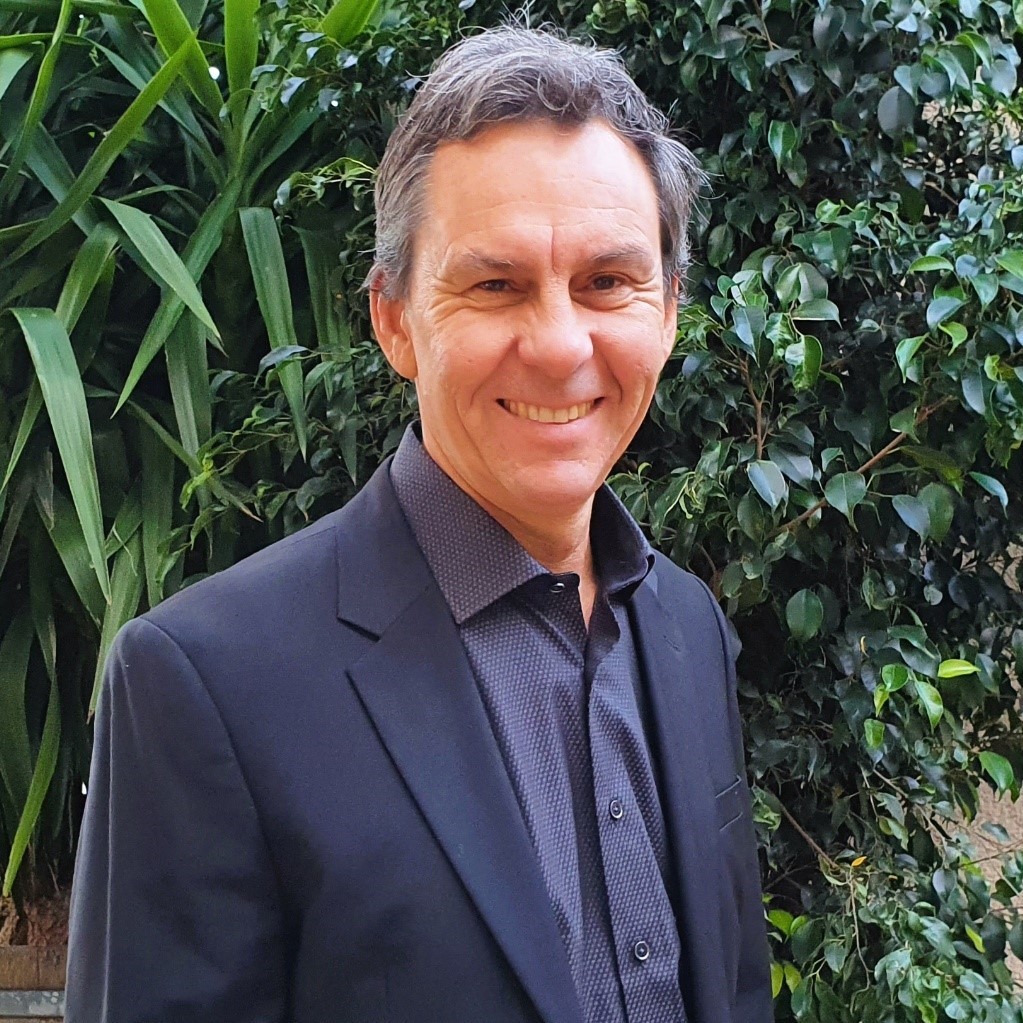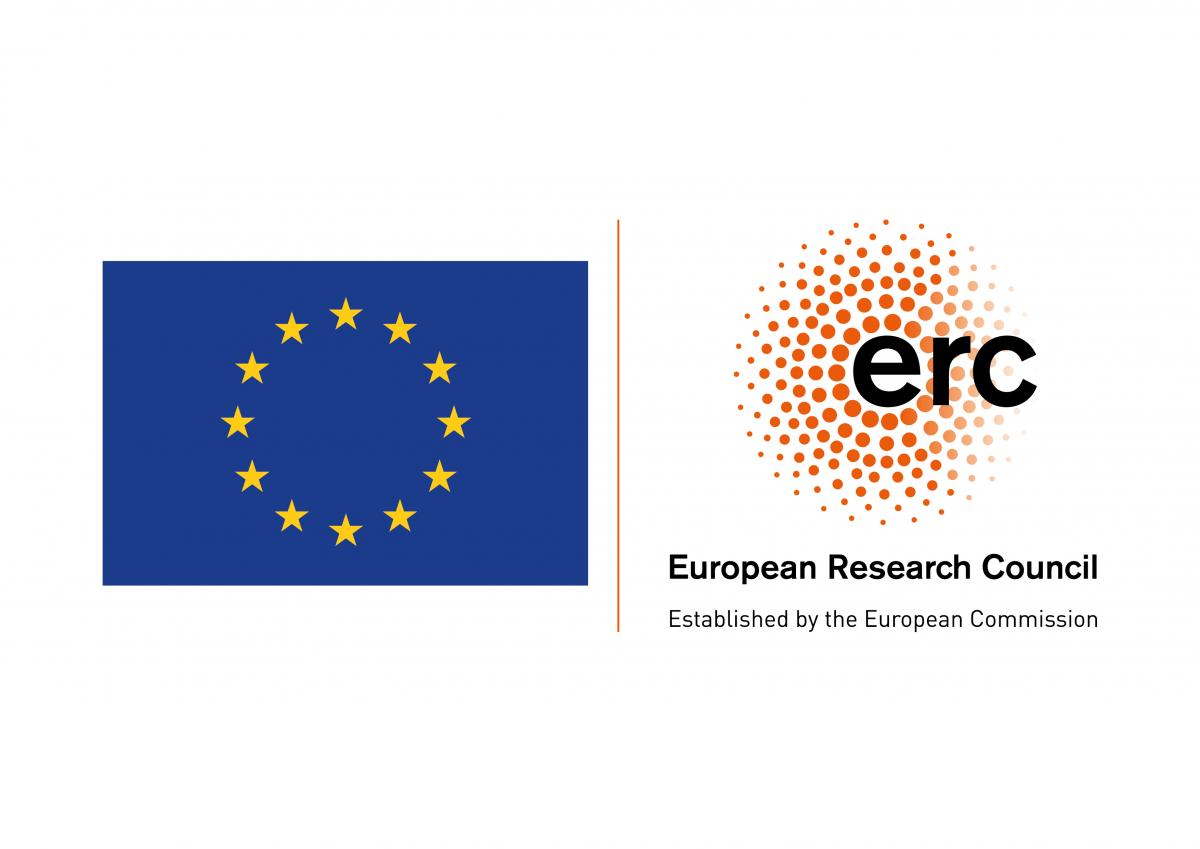Project SPECKLECARS – ERC AdG21 PE7 : Vibrational speckle tomography microscopy for fast intra-operative cancer tissue histopathology
Beginning : 01/01/2023
End of project : 31/12/2027
Leader: Hervé RIGNEAULT, Reserach Director CNRS - INSIS (section 8), MOSAIC Group
Abstract: Histology is central to the diagnosis, staging, and treatment of cancers. It requires the removal of small regions of suspect tissues (biopsies) that are later sectioned and stained with haematoxylin and eosin (HE). However, histology suffers from major weaknesses: First the standard HE protocol cannot work in vivo and requires ex vivo biopsies. Second HE is labour intensive, time consuming and the final tissue sections inspection is possible only after 12 hours. A faster but less accurate protocol, known as extemporaneous histology, can be performed in 40 min and is used in an intra-operative context to guide surgeries. The SpeckleCARS project aims to develop for the first time fast label free tomography microscopy with vibrational sensitivity to provide images with tridimensional improvement as compared to extemporaneous histology and in near-perfect concordance with conventional stained HE histology. This pioneering approach overcomes all the previous challenges: Using a wide field reflection scheme and label free contrast rules out all the drawbacks due to tissue removal and external labelling. It provides instantaneous intraoperative 3D histological data, improving the accessibility and accuracy of tumour detection, diagnosis and treatment. Combining the latest advances in 3D tomography reconstruction algorithms, high power laser systems together with key innovations in random speckle illumination and hyperspectral vibrational imaging, the SpeckleCARS project will provide for the first time volumetric histology imaging in real time over large (mm) fields of view without the need of tissue removal. To demonstrate the power of the developed technologies both ex vivo human and in vivo mouse cancer assessments will be conducted in collaboration with pathologists. The SpeckleCARS approach is broadly applicable to all cancer types and to any tissue diagnostic requiring histological data, so the project breakthroughs will benefit many medical and biology applications.
Portrait : Hervé Rigneault is a CNRS research director at the Fresnel Institute. Engineer of the Ecole Centrale de Marseille, he did his thesis in the field of optical thin films and was recruited at the CNRS in 1995 to work on light emission in optical microcavities for quantum optics applications. He received the bronze medal of the CNRS in 2000 for his work. In the early 2000s he became interested in the detection of individual fluorescent molecules and created the Mosaic group of the new Fresnel Institute to work at the interface between physics and biology, relying on strong collaboration with biologists. His initial work on fluorescence correlation spectroscopy evolved towards nonlinear imaging and more particularly coherent Raman imaging in microscopy where he developed both fundamental, instrumental and applied aspects in collaboration with academic laboratories and industries. In the 2010’s his work evolves towards the development of endoscopes allowing to activate nonlinear contrasts like 2photon fluorescence, harmonic generation and coherent Raman. He collaborates closely with colleagues of the PhLAM Laboratory of Lille for the development of original optical fibers. His work in coherent Raman has found applications in hospitals for histological imaging in a few minutes. In 2019 he is at the origin of the creation of the company Lightcore Technologies which develops multi-photon and coherent Raman endoscopes. In addition, he is a fellow of OPTICA since 2020.

Contact : Hervé Rigneault
The ERC : Founded in 2007, the European Research Council is part of the EU Framework Programme for Research and Innovation (Horizon 2020). The ERC awards individual research grants each year to scientists from around the world. Once selected, the recipients must conduct their research in an EU member state or associated country. The ERC funds innovative exploratory projects that are likely to generate scientific, technological or societal progress. While all fields of knowledge are eligible, preference is given to new ideas at the interface of the traditional disciplines. Scientific excellence is the ERC’s sole selection criterion. It is evaluated by international experts organized in 25 specialized panels. In order to ensure the projects’ continuity in the long-term, ERC grants are allocated for a duration of five years. They enable the recipients to recruit collaborators, carry out missions in other countries, etc.
ERC Advanced Grants, up to 2.5€ million for 5 years, are for established research leaders with a recognised track record of research achievements.
The ERC website
Press release 26 April 2022, "ERC Advanced Grants : 253 Top Researchers awarded over 624 M€"
CNRS DR12 Press Release : https://www.provence-corse.cnrs.fr/en/person/herve-rigneault
Article in CNRS Hebdo régional, édition du 28/04/2022 "2 lauréats de la bourse européenne Advanced Grant 2021 en Provence"
ERC Advanced Grant 2021 Indicative statistics





 ResearchGate
ResearchGate Flux RSS
Flux RSS